I have been asked to provide a comment on the current ongoing case of the GMC v Dr H Webberley. The Tribunal hearing is being held at the Medical Practitioners Tribunal Service (MPTS).
Firstly, this blog is an opinion on matters as they proceed, and I have no part in the case. I am merely viewing aspects from the outside, like many others. I am preparing this in a non-professional capacity, but I do have some experience at giving expert evidence at tribunal over many years.
I am getting updates from ‘live Tweets’ from the hearing provided by the Tribunal service and will see if I can get a press update as well. I am also thankful to @truesolicitor and others for their updates on this case.
In this case, and current tribunal hearing, Dr Webberley (Dr W) is accused of practising medicine outside the rules and regulations of the General Medical Council (GMC) during the period March -November 2016, A failure to hold a proper safeguarding policy, and (2018) a failure to be registered as a practice in Wales. But there is more to it than that.
This update is in two parts from days 15 and 16
Day 15 is brought to you by déjà vu.
(Thursday) [week 4] of the public hearing.
Supposed to be a normal start today for the tribunal to be ready for 10:00 am, everyone turned up, rested and ready after a ’reading’ day, yesterday.
After the intensity of a days cross-examination of Dr K (the red teams expert witness), today was supposed to be a little quieter.
Today was to be supposed to be about the evidence and cross-examination of Dr A. A prosecution (red team) witness.
Well, yet again, today turned out to be anything but ‘supposed to be’ and turned into a bit of a GMC generated farce.
At 10:30, or so Dr A is ready. However, SJ suggests Dr A is not needed yet. Chair asks Dr to withdraw for a few moments. But Why?
IS has asked the chair for some more time to get a witness statement. Chair confirms if this is correct, perhaps bemused as to why.
You may recall that some aspects of the ‘bullet points’ were deemed admissible. This has meant that witness statements from the GMC have had to be reviewed. In turn, these amended statements are impacting the statements from the Dr W witnesses. Those statements have to be reviewed and then re-issued so the GMC witnesses can see what’s changed. It is important the right facts are in the hearing and some of this stems from the change of mind about the acceptance of the information as admissible evidence.
So, here we are AGAIN. More late evidence from the GMC.
Why?
The panel must be getting exasperated over this.
The important point here is that the information provided LATE by the GMC to Dr A (their witness) meant Dr A had to update their statement and submit this to the tribunal and the defence (blue) team.
That then means, as happened with Dr K, the amended statement has to be reviewed and the line of questions updated to reflect the amended points. That takes time, and Dr A cannot be properly cross-examined (in IS’s view) until he is happy with a ‘final’ statement from Dr A.
Additionally, The impact of the updated statement from Dr A, ALSO affects the statement and response from the blue team’s expert Dr P. She is not due to be called yet, but until the QC has the latest version, the impact of her response, which needs to be presented to the tribunal and the Red team in good time isn’t known.
SJ suggests this ‘new’ evidence “arises” from the impact of the information in the bullet points of evidence from last week and the extent to the tribunal allowed these to be presented. You will remember that was points 2-5 of the 6 submitted.
This is a little bit of game playing on SJ’s part as he is responsible for continuously providing new evidence late in the day!
There is a little bit of cat and mouse about this, and which Dr is criticising which Dr and with and about what!
Both QCs discuss and agree on the extension of time for reading and amending statements. The suggestion is a start at 1:30 pm.
For the panel, and the chair especially, it is a complicated issue. Whilst today’s issue isn’t perhaps the same as Mondays, what is the Chair to do?
He has to be seen to be fair to the tribunal. He could decide that ‘late’ evidence is unacceptable and is barred. However, that runs the risk, it is crucial and could have changed the outcome, one way or another. At the same time, he has to try and keep to a timetable and be aware that the GMC (the prosecution) have had FOUR years to prepare their case.
Bear in mind also that the case is (or should be) built around matters that were in place at the time of the alleged offence(s). That is 2016/17. As such it is the rules and practices in place at the time.
That said, if practice and protocol have moved on, it would seem trite to convict for breach then when the same practice is now accepted practice.
As I have said before, the GMC case should have been properly prepared and, as it is based on breaches then, shouldn’t be difficult to compile, as it isn’t based on current practice, not unless that erases the breaches. Why then are they in a continuous muddle about the evidence and KEEP changing what is presented and to whom. It is certain the chair will take a dim view of this but has to hear all the relevant evidence.
A restart, anticipated for 1:30, becomes 2:35.
The amended statement has been received by the tribunal from Dr P (the expert witness for the blue team)
IS now apologises to the panel for the delay and there is discussion as to whether Dr A should take the stand today, as the amended statement from Dr P, may have an impact on the evidence Dr A will be presenting.
Why?
Well, SJ states, that with the information now in front of them Dr A may have to be deferred until tomorrow (Day 16).
Why?
SJ continues “Dr P is very critical of Dr A, she says he is not qualified in this area, we need to be able to test that. “ That must hurt a little!
Oh, that’s a bit of a curveball the GMC wasn’t expecting. You will remember from Monday, that IS was able to establish that DR K wasn’t really an expert and hadn’t practised in the UK, wasn’t a member of the GMC and didn’t use the UK ‘Gold Standard’. Déjà vu here?
Why?
SJ continues, “Dr P is dismissive of Dr A and his relevant expertise, stating (Dr P’s words) “you know nothing about gender dysphoria “[GD]. We need to react to that…..”
Chair raises concerns about keeping on track and can the evidence from Dr K be completed in 1 day.
They then agree to all go home and come back tomorrow at 09:30.
And that was that.
What have we learned?
Today’s full-day turned out to be a bit empty and was ‘completed’ by 14:48
Today was a bit of a waste of time and was caused by the ripples of late GMC evidence spreading out and affecting the rest of the pond and leaving disruption in its wake.
Dr A spent most of the day waiting not to be called and will have to prepare to be ready for tomorrow.
Dr P has already sent a torpedo to undermine the case of the GMC from Dr A.
The Red team are going to have to defend this accusation robustly, but if Dr A doesn’t have the necessary experience and/or understanding, that is an uphill task.
We don’t know the detail of what is in each statement, but IS will be using this torpedo as a starting point on his cross-examination of Dr A when that comes.
Day 16 is brought to you by how deep is this water exactly?
(Friday) [week 4] of the public hearing.
Today, after the delays of yesterday, Dr A, a paediatric psychologist is going to give evidence on behalf of the GMC. He is an Expert witness and is providing factual evidence to the hearing. The same as Dr H and Dr K.
Whilst he is an expert on these matters, he will be steering his opinion towards the red team, although cannot ignore or avoid facts and matters that may benefit the blue team. He is not allowed to be biased.
His evidence could be important as it affects how those in the blue team respond, particularly Dr P ( blue team’s expert) and Dr W herself.
SJ is asking the questions of Dr A ‘evidence in chief’ his question shouldn’t be too taxing and are mainly to allow Dr A to clarify the positive parts of his statement and to emphasize the parts SJ want the panel to be aware of. As such, they may gloss over the parts that are a bit shaky. The same will apply when IS questions Drs P & W, his witnesses.
SJ begins to focus on MDT’s (multi-disciplinary team). These are very important to the red team. The reason is they feel that using an MDT approach is far superior to working alone or on a more ad-hoc basis. They are using this approach to try to show that Dr W, in not using an MDT approach was wrong and unsafe.
Remember that on Monday, Dr K undermined that by saying that it wasn’t the only route and doesn’t work in all cases. It just depends.
MDTs are used in many branches of healthcare but are not the only approach. Dr A seems to be a fan although has no experience in their use with trans patients.
Dr A loses his train of thought on the questions and struggles to follow the questions being asked here.
Dr A responds to questions on the GIC, processes and trans patients, plus the appliance of WPATHWPATH World Professional Association for Transgender Health https://www.wpath.org standards and how those link to the NHS.
He seems positive but does suggest it’s one of application and not rigid rules. This would appear to suggest ‘flexibility’ rather than rigidity. That’s not really what the GMC is trying to show. Dr A states the WPATH guidelines are ‘”deliberately “ loose and open to interpretation.
The questions move to care plans. Dr A refers to these and in relation to his ‘old friend’ MDT.
SJ then askes Dr A “Can you explain the importance or otherwise of time for people to adjust to ongoing process?” Seems fairly straightforward.
Dr A replies that he hasn’t treated a GD (gender dysphoria) or been on a team giving gender-affirming hormones so “this is on the edge of my remit.”
Sorry?
This IS a hearing about transgender healthcare and patients with GD and/or on hormones. Dr A IS the GMC expert on this!
He brings himself back in line by suggesting this would be part of and MDT. So that’s OK then.
If you can imagine Dr A standing in a tank of water, and the top of the tank is at the top of his head, let’s say water is beginning to fill the tank. The amount of water in the tank relates to the confidence Dr A has in his own knowledge on trans healthcare compared to the blue team expert Dr P.
Dr A then admits that Dr P has far more experience than he does. His feet are getting wet.
SJ moves on to hormones and the mental health effects of withdrawal of treatment. Dr A explains that this should be managed with the patient, that difficulties can be experienced (no surprise) and that this is best managed by, yep, and MDT. At this point, SJs line of questions is intended to get DR A to implicate Dr W as having acted incorrectly.
The other implication is that removal of treatment does harm patients and that is what PGB said when he confessed to removing NHS care from trans patients. It seems they all agree it’s bad but are happy to do it to protect their own little clique.
SJ then questioned Dr A on the links with CAMHS. And why perhaps Dr W hadn’t coordinated with CAHMS as much as she should, or at least, recorded in the notes that she did. Oh, but…Dr A adds “It varies but it’s actually really difficult to get quick responses and assessments from CAMHS”
That is an issue unless Dr W engaged someone else (Dr P perhaps) to do this and this creates an MDT maybe? This very aspect will come up later.
The line of questions moves on to what Dr A thinks of Dr Ps expertise and practice. The implication is that Dr P acted incorrectly or not in the manner Dr A would expect. Of course, Dr A continues to assert that MDTs are the best form of practice and that not doing so is incorrect, be that from Dr P or Dr W.
However, he ends his evidence by the response “WPATH states that competency and capacity falls to the individual who is most responsible for the patient, but other decisions are made as a team.”
That’s quite open in that it suggests neither one way or another is correct and depends also directly on the experience of the Dr concerned in treating the type of patient being treated. That response would also suggest there is neither a right nor wrong way perhaps. A flexible approach may be?
SJ ends his questions and IS will now cross-examine Dr A.
Settling in
Dr A is probably feeling OK, he scored a few hits against Dr P may be and showed perhaps that Dr W wasn’t entirely right. He may have my metaphorical water around his ankles, but that’s workable.
Remember IS is looking for holes and weaknesses in Dr As evidence, that’s his job.
IS will start with the easy questions, just settle his witness, and get them to give answers that could cause difficulties in later questions. It’s a careful path of questions, as we saw with Dr K.
So, the first question, based on a document Dr A produced, based on his own experience and qualifications, which is his own life.
IS asks him about is first degree a BSc in Psychology. Easy, a matter of fact, clearly. and a QC only asks a question that he /she is confident they already know the answer too.
Dr A “Do you mean my actual CV or the one I’ve put in this report?”
Sorry, What?
You made up a CV for your own EXPERT report?
Then Dr A is scrambling for his CV, which one? IS helps him, the one you gave to the GMC perhaps.
SJ, is panicking. An says his junior will get it emailed, (bear in mind few are in the same room these days – covid reasons – otherwise, it would be passed across the table. )
Not sure how that water level is going, and it’s only Q1, 5 minutes after lunch.
SJ, asks if there could be an adjournment to discuss this matter. After a short break IS is ready again.
Well-travelled?
To summarise, we soon discover that Dr A has had over THIRTY positions in NINE years. But they’re not all properly documented and even he isn’t quite sure how many or where or for how long.
An EXPERT who before lunch was criticizing the lack of attention to detail and notes kept by Dr W.
Dr A claims these were locum posts, fair enough, but some places closed down, and he had to move on. IS asks him about his current position “as a consultant”. Dr A is a bit nervous (water is rising slowly) and says he is a locum consultant and runs his own business providing expert witness work.
IS continues, has Dr a done any research? Well not really,
A masters or further study perhaps? , Well some, but incomplete. Don’t forget, these are the easy questions, the ones to ‘settle’ the witness. How’s the water level? Maybe the sweat isn’t helping either.
I am only trying to report on what is being said.
Expertise?
IS asks Dr A about any trans healthcare positions.
IS asks “It’s clear unless I’ve missed something that you’ve never worked in a Gender identity clinic, or been part of and MDT (Dr Ks favourite thing) working with Gender identity?”
Pause. The tribunal waiting for an answer. Can he pull this one out of the bag?
Easy, surely, that’s what this case is about isn’t it?
It’s about trans care and medication, treatment of GD and patient welfare. It’s about the fact that the defence (Dr W) is accused of not acting correctly in treatment of trans patients. You would imagine the GMC would have a raft of fully competent experts in this field to give evidence on a strong and robust case, wouldn’t you?
Dr A “No”
( Like I say, I can only report from the questions asked and responses given. ) IS continues.
IS “you’ve never studied GD?” Dr A “No”
IS “Have you any experience in working with GD in another country? Dr A “No”
IS “Have you ever diagnosed anyone with GD?” Dr A “No”
IS “Is there any post where you have worked with adolescents over a number of years?”
Dr A “probably not. My adolescent and CAMHS posts were shorter posts”
IS then points out that if you work with patients over a number of years, you can get the best approach. Dr A agrees. Dr A doesn’t agree with IS question that working with patient and at the same place for a number of years improves your experience and the learning you gain. I guess he wouldn’t as he has experienced that. He does then say he’s been to MDT meetings, but not necessarily trans care related ones.
Even I’m getting concerned about the water level now.
Let’s go back to the beginning, but why?
IS then refers back to the very FIRST question asked by SJ which is about his experience in assessing trans patients with GD. Dr A confirmed that he had NOT assessed and treated a patient for GD. He HAD treated them for autism though.
A reminder Dr A is being paid ‘as an expert’ to give relevant expert opinion on this case on behalf of the GMC.
IS again refers back to the response by Dr A to SJ. How can he state he has confidence in the role of MDTs in trans healthcare IF he has never been to a trans MDT meeting?
Dr A says he can, as it’s “in the guidelines”.
Dr A confirms he has seen and reviewed the documents given to him by the GMC.
IS “You essentially went away and did a bit of research into this area, the NHS doc, WPATH etc. but you’re just giving us an interpretation of these documents, from the position of someone who has done none of this work?”
Dr A “ That’s fair, but there are no standards for this work.” But I thought he said there were, or was it the flexible approach again, the one he didn’t like?
IS “ have you read the WPATH guidelines before this case?”
Dr A “No I’ve heard of it.”
As you can guess, the robustness of this witness isn’t good. Remember, that Dr P said yesterday, she felt he had no experience in the understanding of GD. That seems a bit of an understatement.
IS continues. I’m not sure what he is thinking, and more worryingly what SJ is thinking, as it is his witness being pulled apart before we have even started on his report. This is just about his CV and area of experience.
…but I’m an ally, that’s gotta help, surely?
IS “So, you’re prepared to accept that you don’t know – is irrelevant to this case?
Dr A “Not in the matters I’ve opined on. I haven’t worked with GD but I’m not ignorant to the issues.”
He continues.
“I’ve been keeping myself abreast as I am a member of the LGBT community, Id heard of Dr W’s services a long time ago because it’s the only thing available other than Tavistock.”
Sorry, wait, what?
Even though Dr A knows little about trans healthcare, hasn’t diagnosed, or treated a patient with GD, has attended some non-trans MDTs and has heard of Dr W and her work, its all ok as he is a member of the LGBT community (he doesn’t say in what capacity).
I think the water, must be near the top and he is trying to bail this one to keep it at a manageable level. I presume he KNOWS about the code of conduct for expert witnesses, and that he would have written read and signed it into his report? SO far, this isn’t looking good for that protocol. Maybe he had heard of it and read it before preparing his report.
IS continues, it is his job after all.
“One of the GMCs questions to you is please describe the role of the psychologist treating a child with GD? How can you answer that when you have no experience in treating GD?
Dr A “We don’t treat GD, it’s a label given so that they can access gender-affirming care.”
Sorry, wait, what?
I’m not sure he would recognise GD if it slapped him in the face!
Back to the comfort zone that are MDTs
IS decides to test Dr A on his favourite topic.
“WPATH is very flexible, you will know there are a number of approaches and enormous criticism of the approach of the clinics in this country, effectively seen by many as protocols over patients.
Dr A “ Yes”
IS establishes firstly that Dr A knows nothing about GIDs and has essentially copied and pasted information into his report, and that Dr A agrees that Nottingham doesn’t use MTD approach for adults or children under 16.
That sort of undermines the MDT approach is a must and reinforces the flexible approach of guidelines.
IS then starts to turn up the heat, or perhaps wants to become friends with Dr A.
He asks a series of questions and gets Dr A to agree that:
Having Autism isn’t a bar to trans healthcare
Dr W & Dr P were working together with patients
They provided timely care
The MDT model is expensive
There isn’t any research into its [mtd] effectiveness
That not treating someone with GD is NOT a neutral act (its harmful)
That is not dissimilar to the responses from Dr K. The GMC case founded on poor patient care, is not really holding up. All the water is in Dr As tank at present, which isn’t good for him, although the extent to which the GMCs case will hold water is doubtful with those collective responses.
Duty of an expert?
You would expect an expert to be able to interpret guidelines and comment on them. If the expert used guidance from elsewhere to refer to it. Not Dr A.
IS established his report was a copy and past exercise relating to the care of Patient B for NHS specs, commissioning documents, WPATH guidelines and more.
IS questions Dr A on the validity of this and the extent to which WPATH isn’t relevant in the UK.
Then there’s more trans-related material copied and pasted and ‘reviewed’
Dr A, clearly not worried about drowning, asks for more water!!
He suggests that not being a GP, he knows how GPS work and what they would use to refer patients to trans services. He relates this back to his favourite subject MDTs but then gets tangled in who may or may not have an MDT. In the end, he agrees with IS that GPs will refer and has been captured by the line of questioning and undone any work he had already achieved in trying to struggle free.
We know that Dr A is lacking in relevant experience, he has admitted that, without much persuasion.
We know he copies and pastes text that he has ‘revied’ into his ‘expert’ report. But he is an expert, so he will know and understand the relevant information in this hearing, won’t he?
IS asks him a question about the content of the GMC (his client) guidelines on bridging prescriptions. (Dr K covered this earlier in the week)
But Dr A hasn’t reviewed those. Expert in trans health care?
IS then questions Dr A on matters to do with patient standards and comparisons between Dr W and UHCL forms.
Firstly, he says he wasn’t asked to review those, seems uncertain why names may have been redacted and accepts, after having criticized Dr W earlier, that the standard on UCLH the forms is not dissimilar to that adopted by Dr W. At this point, he is left spluttering in a very full, tank of metaphorical water.
IS then questions Dr A on Gillick and competency standards. Dr A is then forced to admit that standards he says are used, are sort of invented and can’t be related to those of Dr W.
Dr A is also forced to admit that the NHS standards and those of PGB are less than they should be, as they removed treatment, which affected patient A. In fact, Dr A had to agree that the care of Dr W delivered LESS harm.
He is then forced to admit that in one case, a relationship with Mermaids about the standards of care, and his favourite MDTs wasn’t what he said it was and that the referral was from Mermaids to Dr W in the first instance. If the water level wasn’t bad enough, the eggs running down his face may be affecting his judgement and he can’t see his copied and pasted ‘expert’ report.
Dr A then gets into a struggle about how many people are an MDT. IS asks refers him to PGB working with a single therapist with Patient A (Pt A) and asks him if that constitutes an MDT. Dr A says “No”.
Dr A does, on questioning, except it isn’t a fixed number, and it’s about “skillset” So, how can he state, as evidence, that MDTs do or don’t work? Especially when he has also stated and accepted there is no research on this.
The chair decides enough is enough for the day and calls time.
What next?
Poor Dr A is still under oath, (and coughing) so he can’t discuss this until his time in the stand is over.
That will be 09:30 on Monday ( Day 17) and we will resume with the rest of Dr As cross-examination. That on the assumption he hasn’t had a positive PCR test by then! Hopefully, it’s just nerves and a high metaphorical water level.
He could have a restless weekend but will be relieved to out of his metaphorical water tank.
As I have alluded to above, acting as an Expert is a very important role. I have been in many tribunals with experts on both sides and acting as a joint expert. I have never seen TWO experts (Drs K & A) pulled apart and shredded as much as this.
Yes, occasionally points may have to be conceded, and they may be inconsequential, but usually, the robustness of the testimony and evidence is sound.
These two so-called experts are not really experts, not in the sense of being able to defend their own reports and make the case for their client, the GMC. This being they are acting on the prosecution side. It is more common for a defence case to collapse or be undermined, where there is no case, but this, on present evidence is a shambles.
We have yet to hear from the blue team, and holes will be found, I am sure, but their case looks stronger now that at the start as the GMC experts are effectively accepting that the approach isn’t actually wrong. Both GMC experts have accepted a flexible approach is suitable, that standards are flexible, and that no treatment is non-neutral and harmful.
To be continued…../
Authored by Nicola Rose @Nicola2019




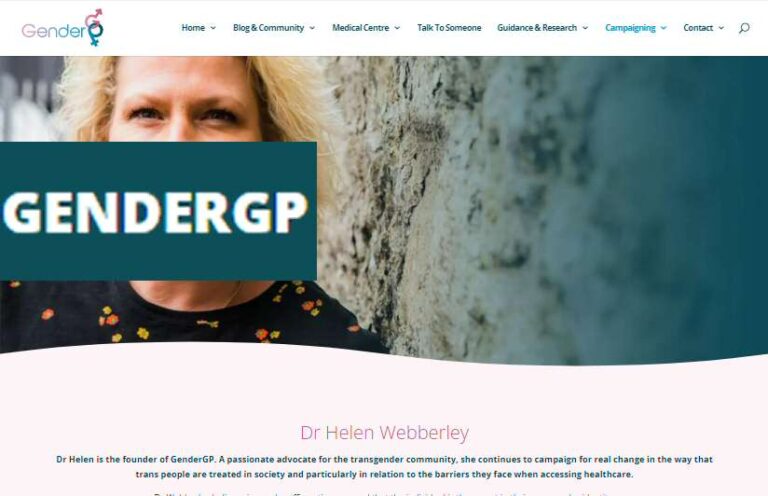
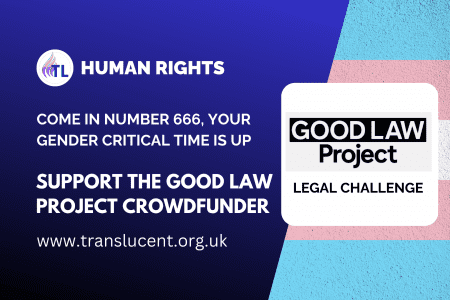
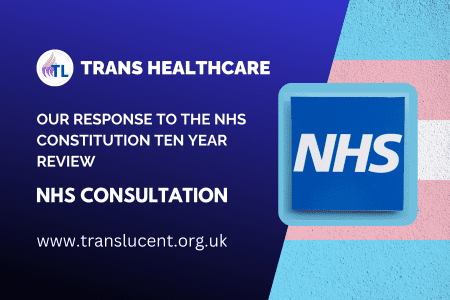
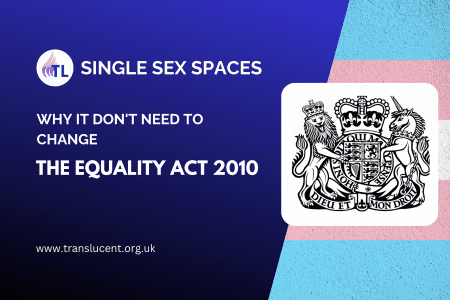

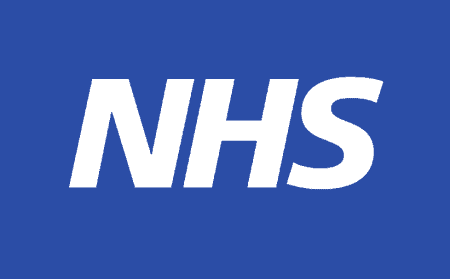
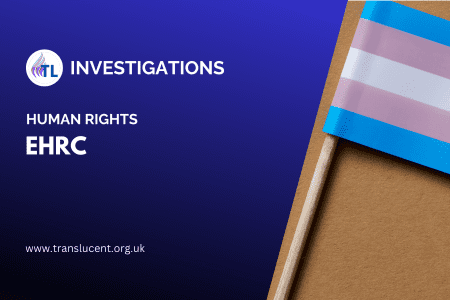
 To provide the best experiences, we use technologies like cookies to store and/or access device information. Consenting to these technologies will allow us to process data such as browsing behaviour or unique IDs on this site. Not consenting or withdrawing consent, may adversely affect certain features and functions.
To provide the best experiences, we use technologies like cookies to store and/or access device information. Consenting to these technologies will allow us to process data such as browsing behaviour or unique IDs on this site. Not consenting or withdrawing consent, may adversely affect certain features and functions.